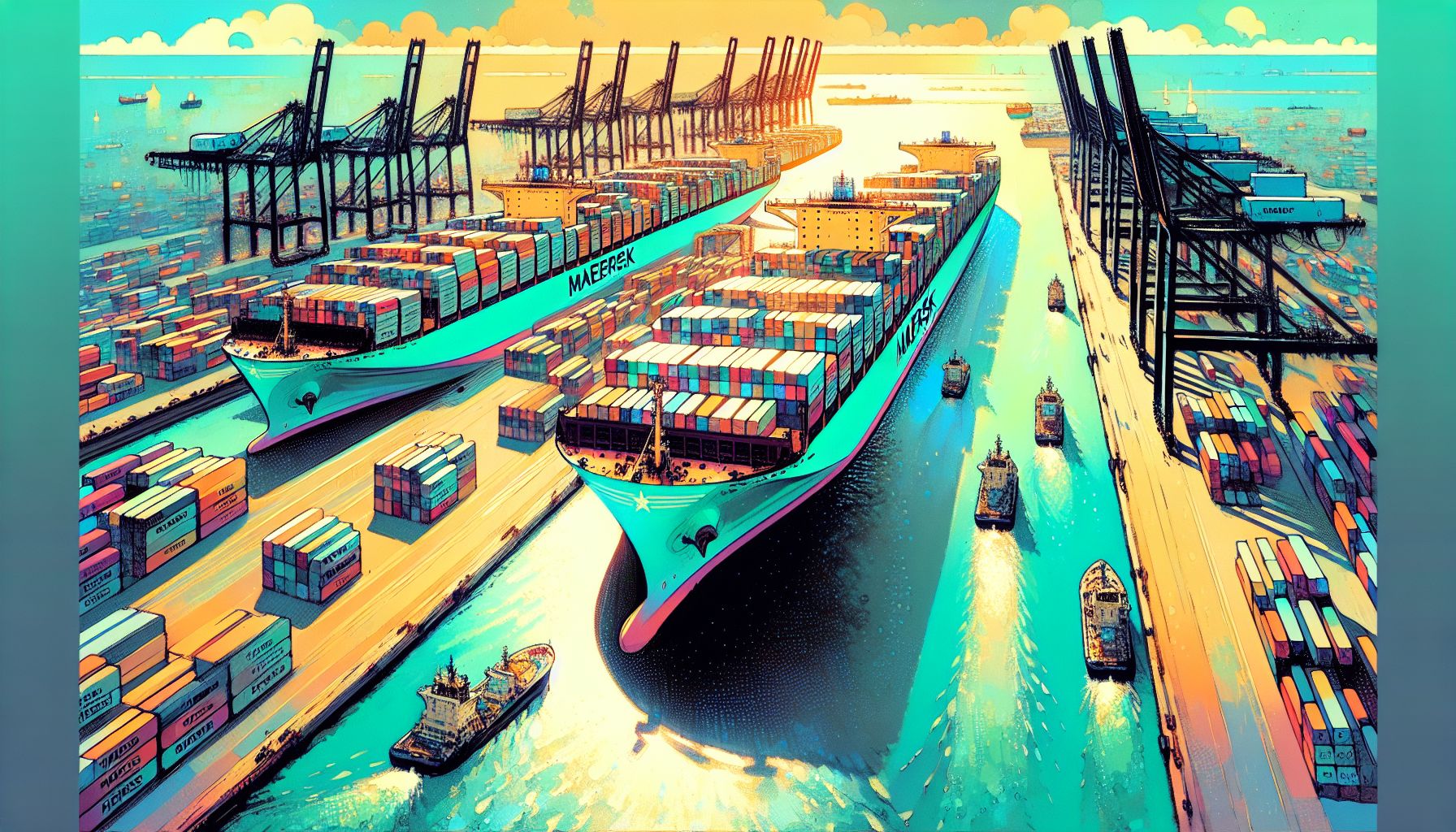Maersk Shifts Course: LNG Vessels to Replace Methanol Fleet

Copenhagen, Tuesday, 27 August 2024.
Shipping giant Maersk is expanding its fleet with LNG-powered vessels, moving away from methanol fuel. This strategic pivot aligns with global emission reduction efforts, marking a significant industry shift towards greener alternatives. The company plans to charter 37 LNG container ships, each capable of carrying 16,800 TEUs.
A Major Transition in Fuel Strategy
Maersk’s decision to transition from methanol to liquefied natural gas (LNG) represents a critical shift in its long-term strategy. The company, headquartered in Denmark, is investing in LNG as a transitional fuel, viewing it as a more environmentally friendly option compared to traditional marine fuels. This move comes as part of a broader industry trend where shipping companies are increasingly focusing on reducing their carbon footprints.
Construction and Investment Details
The new LNG-powered tankers and container ships will be constructed at the New Times and Yangzi Jiang shipyards in China. These vessels will be leased to Maersk on a fixed-term basis through intermediary firms. The total investment in these 37 LNG container ships is expected to reach up to $1 billion. Each vessel will have a capacity of 16,800 twenty-foot equivalent units (TEUs), significantly enhancing Maersk’s shipping capabilities.
A Broader Industry Trend
Maersk’s shift to LNG is reflective of a broader industry trend towards greener fuels. As the world’s second-largest container shipping company, Maersk is joining other top players in supporting carbon reduction efforts. The company’s Chief Operating Officer, Rabab Boulos, emphasized that the fleet renewal program, initiated in 2021, is fundamental to maintaining a competitive edge while decarbonizing operations. This program aims to replace older vessels with new dual-fuel ones, ensuring a steady flow of needed capacity from 2026 to 2030.
Dual-Fuel Vessels for Flexibility
Maersk’s new fleet will feature dual-fuel engines capable of operating on both LNG and methanol. This approach provides the company with operational and financial flexibility, ensuring long-term competitiveness. According to Ahmed Hassan, Head of Asset Strategy & Strategic Partnerships at Maersk, around 25% of the company’s fleet will be equipped with dual-fuel engines once the new vessels are delivered. This diversification strategy allows Maersk to adapt to future fuel pathways, including bio-LNG, which is seen as a potential long-term solution for decarbonization.
Controversy and Criticism
Despite the strategic advantages, Maersk’s decision to invest in LNG has faced criticism. Environmental groups and industry experts argue that LNG is not a long-term solution due to its limited greenhouse gas reduction capabilities. Professor Tristan Smith from University College London pointed out that LNG’s GHG reduction potential is only about 23%, which falls short of the International Maritime Organization’s targets. Critics also view this move as a step backward from Maersk’s previous commitments to zero-emission fuels.
Future Prospects and Commitments
In addition to its LNG expansion, Maersk has launched C2X, a venture focused on producing green methanol in Egypt and Spain. This new initiative aims for a production capacity of over 3 million tons by the end of the 2030s. Maersk has also signed agreements with Jordan to produce marine fuel from green methanol, underscoring its continued commitment to sustainable and renewable energy sources. This dual approach highlights Maersk’s broader strategy to balance immediate operational needs with long-term environmental goals.

